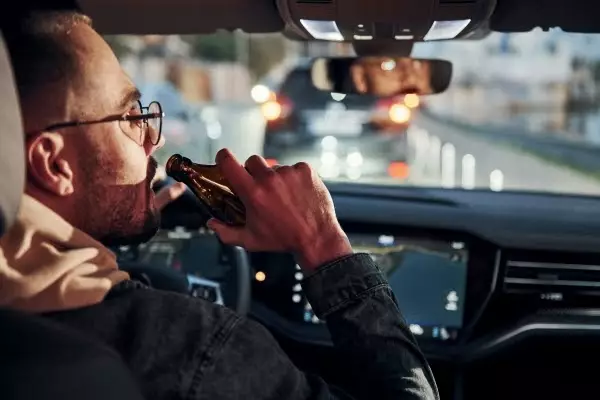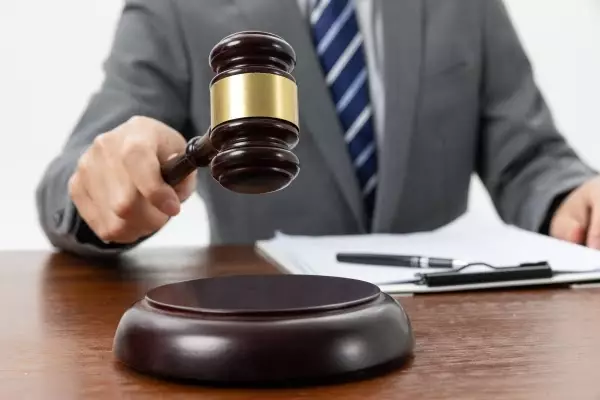In Pennsylvania, there are a variety of penalties and sentences that can be handed down for alcohol crimes. These crimes can range from public drunkenness to DUI. That said, the penalties and sentences will vary depending on the severity of the crime. If you are facing charges for an alcohol-related crime, it is important to understand the possible penalties and sentences that you may be facing. And in this blog post, we will discuss the different penalties and sentences that are available for those convicted of an alcohol crime in Pennsylvania.
Different Types of Penalties and Sentences in Pennsylvania
There are a variety of different penalties and sentences that can be handed down for alcohol crimes in Pennsylvania. These include:
Fines
Fines are the most common penalty for those convicted of an alcohol crime in Pennsylvania. The amount of the fine will depend on the severity of the offense.
Probation
Probation is another common penalty for those convicted of an alcohol crime in Pennsylvania. Probation can last for a period of six months to five years.
Jail Time
Jail time is a possibility for those convicted of an alcohol crime in Pennsylvania. The amount of jail time will depend on the severity of the offense.
Community Service
Community service is sometimes required as part of the sentence for those convicted of an alcohol crime in Pennsylvania. The number of hours required will depend on the severity of the offense.
Alcohol Treatment and Education Programs
Those convicted of an alcohol crime in Pennsylvania may be required to attend treatment and education programs. These programs are designed to help offenders overcome their addiction and avoid future criminal activity.
The penalties and sentences that are available for those convicted of an alcohol crime in Pennsylvania vary depending on the severity of the offense.
Public Drunkenness and DUI Penalties
The first step in understanding the penalties and sentences for alcohol crimes in Pennsylvania is to understand the different types of crimes that fall under this umbrella. Crimes that fall under this category can be divided into two main categories: public drunkenness and DUI.
Public Drunkenness
Public drunkenness is defined as being intoxicated in a public place.
According to the Pennsylvania General Assembly, If a person appears in any public place "manifestly under the influence of alcohol or a controlled substance," he is guilty of a summary offense. This can include places like parks, sidewalks, and even some businesses. The penalty for public drunkenness is usually a fine, but it can also include jail time if the offender is deemed to be a danger to themselves or others. A person convicted of violating this section may be fined not more than $500 for the first offense and not more than $1,000 for the second and each subsequent violation.

DUI (Driving Under the Influence)
DUI is defined as operating a vehicle while under the influence of alcohol. The penalties for DUI are much more severe than the penalties for public drunkenness. The DUI Law establishes a tiered approach to DUI enforcement and treatment, with various modifications to penalties, terms of suspension, fines, and other requirements. The licensing criteria and penalties are determined by an individual's Blood Alcohol Content (BAC) level and prior convictions. The new legislation is focused on treating first-time DUI offenders rather than solely penalizing and suspending them.
There are three levels of DUI:
Minors, commercial drivers, school vehicle or bus drivers, and individuals convicted of DUI who are involved in an accident that causes injury or property damage may be subjected to severe BAC penalties under the new legislation. This applies even if their BAC is not in the high range. Offenders who refuse a breath or chemical testing might face the most severe BAC penalties.
General Impairment (.08 to .099% BAC)
First-time Offender:
-
Ungraded misdemeanor
-
6 months probation
-
$300 fine
-
No license suspension
-
Alcohol highway safety school
-
Treatment when ordered
Second-time Offender:
-
Ungraded misdemeanor
-
5 days to 6 months in prison
-
$300 to $2,500 fine
-
12-month license suspension
-
Alcohol highway safety school
-
1 year ignition interlock
-
Treatment when ordered
Third or Subsequent Offense:
-
2nd-degree misdemeanor
-
10 days to 2 years in prison
-
$500 to $5,000 fine
-
12-month license suspension
-
1-year ignition interlock
-
Treatment when ordered
High BAC penalties (.10 to .159% BAC)
High BAC penalties are the same as general impairment penalties for first and second offenses but increase for third and subsequent offenses. This is also the level at which mandatory minimum sentences come into play.
First-time Offender:
-
Ungraded misdemeanor
-
6 months probation
-
$300 fine
-
No license suspension
-
Alcohol highway safety school
-
Treatment when ordered
Second-time Offender:
-
Ungraded misdemeanor
-
5 days to 6 months in prison
-
$300 to $2,500 fine
-
12-month license suspension
-
Alcohol highway safety school
-
1-year ignition interlock
-
Treatment when ordered
Third or Subsequent Offense:
-
1st-degree misdemeanor
-
90 days to 5 years in prison
-
$1,500 to $10,000 fine
-
18-month license suspension
-
1-year ignition interlock
-
Treatment when ordered
Fourth or More Subsequent DUI Offense:
-
1st-degree misdemeanor
-
1 to 5 years in prison
-
$1,500 to $10,000 fine
-
18-month license suspension
-
1-year ignition interlock
-
Treatment when ordered
For those with the highest BAC levels, the new legislation has stiff penalties, but it also allows for treatment. This fair approach allows people to get counseling for an alcohol problem while still punishing individuals who choose to continue drinking and driving.
Highest BAC penalties (.16% and higher) or Controlled Substances
The most severe BAC penalties are imposed on drivers who have been using controlled substances or who have refused breath or chemical testing.
First-time Offender:
-
Ungraded misdemeanor
-
72 hours to 6 months in prison
-
$1,000 to $5,000 fine
-
12-month license suspension
-
Alcohol highway safety school
-
Treatment when ordered
Second-time Offender:
-
1st-degree misdemeanor
-
90 days to 5 years in prison
-
$1,500 to $10,00 fine
-
18-month license suspension
-
Alcohol highway safety school
-
1-year ignition interlock
-
Treatment when ordered
Third or Subsequent Offense:
-
1st-degree misdemeanor
-
1 to 5 years in prison
-
$2,500 to $10,000
-
18-month license suspension
-
1-year ignition interlock
-
Treatment when ordered
Underage Drinking and Driving
Underage drinkers often drink more at a time than adults aged 21 and older. Binge drinking can induce brain damage, alcohol dependency, and even death. While many teenagers and young adults believe they can drive after a single drink, the facts don't support that notion. In fact, vehicle accidents are the leading cause of youth mortality, and about a quarter of fatal collisions involve an underage drinking driver.
Anyone under 21 in the Commonwealth of Pennsylvania who attempts to purchase, obtain, consume or transport alcoholic beverages is guilty of a summary offense.The fines for a first and second violation are $500 and $1,000, respectively.
Alcoholic beverages, such as liquor, wine, beer, or any similarly fermented malt beverage containing 0.5 percent or more alcohol by volume, are included in this category. Even so-called "non-alcoholic" beers may be alcoholic enough to result in charges for underage drinking.
Underage students who are caught drinking may face further consequences, such as code of conduct infractions, parental notification, required alcohol education programs, and disciplinary action up to and including loss of scholarships or expulsion.
Is a DUI a felony in Pennsylvania?
A DUI is only a felony in Pennsylvania if it's the offender's fourth offense or if the offender has been convicted of vehicular homicide while under the influence.
If you have been charged with a DUI, it is important to contact an experienced criminal defense attorney who can help you navigate the legal process and ensure that your rights are protected. The penalties for a DUI can be severe, and an experienced attorney can help you avoid the most serious consequences of a conviction.
Adjudication Alternative Program
The Adjudication Alternative Program (AAP) is a first-time offender program that allows eligible individuals to avoid a DUI conviction. Instead of pleading guilty to a DUI, participants in the AAP can enter a guilty plea to a lesser offense, such as reckless driving.
To be eligible for the AAP, an individual must:
-
Be a first-time offender
-
Have a BAC of .08% or lower
-
Not have been involved in an accident causing injury or death
-
Not have refused to submit to chemical testing
-
Not have been convicted of any other alcohol-related offenses, such as public drunkenness.
In addition to the requirements above, participants in the AAP must also complete a drug and alcohol evaluation and treatment program. The AAP is not available to individuals who have already been convicted of a DUI or who have participated in the program before. The benefits of the AAP include avoiding a DUI conviction, which can lead to higher insurance rates, loss of employment, and difficulty obtaining loans. Additionally, participants in the AAP will not be required to install an ignition interlock device on their vehicle.

Conclusion
If you are charged with a DUI offense in Pennsylvania, it is important to contact an experienced criminal defense attorney who can help you navigate the legal process and avoid the most serious consequences of a conviction. The penalties for alcohol-related offenses in Pennsylvania can be severe. Still, there may be options available to first-time offenders to help avoid some of the more serious consequences of a conviction. Nonetheless, you may also be eligible for the Adjudication Alternative Program, which can allow you to avoid a DUI conviction altogether and instead give you a lesser sentence. Regardless of your situation, an experienced attorney can help you understand your options and protect your rights.


